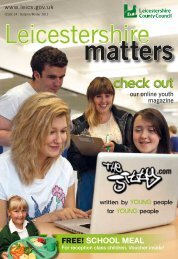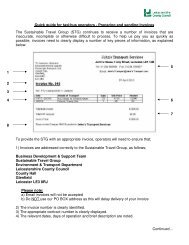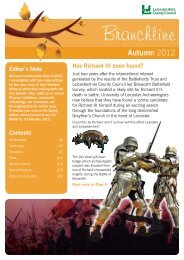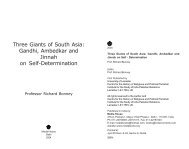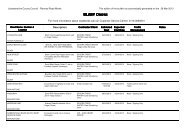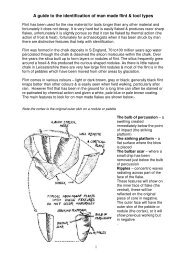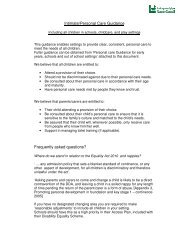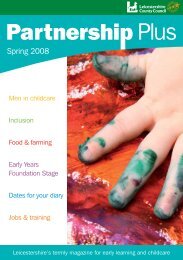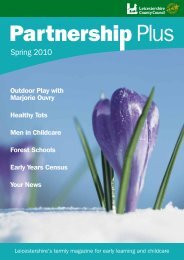Creative Writing Exercises - Leicestershire County Council
Creative Writing Exercises - Leicestershire County Council
Creative Writing Exercises - Leicestershire County Council
Create successful ePaper yourself
Turn your PDF publications into a flip-book with our unique Google optimized e-Paper software.
WORDS<br />
THINGS&<br />
Practising reading out and performing can be great fun and very rewarding<br />
if shared within a group.<br />
Encouraging participants to have a go at reading and offering constructive<br />
critical feedback on each other’s performance can be a very quick way of<br />
improving out-loud reading skills.<br />
The poet Seamus Heaney maintains that in a poem every word counts. By practising<br />
reading out and performing, by ‘feeling’ every spoken word in the mouth we become<br />
more attuned to the vitality of individual words in poems or even prose.<br />
This attention to the detail of sound and the sense of words will also enhance the ability<br />
to write creatively.<br />
A lot of people can feel nervous about reading aloud. Even the most confident of readers<br />
can sometimes forget the basic ‘rules’ of performance. Here are some basic tips that you<br />
or your learners may find useful.<br />
Some tips on reading out:<br />
• Don’t cover your face with the paper or book you are reading from.<br />
• It is good to stand up, to allow easier breathing.<br />
• Try to speak to be heard – slowly, clearly, and loud enough.<br />
• Feel each word in your mouth, enjoy saying the sounds.<br />
• Pause for commas, full-stops, line endings, stanza or paragraph breaks.<br />
Reading Out and Performing<br />
• Slow it down! After reading a title, pause. At the end of a piece, pause before moving on to the next<br />
(count to 5 silently in your head). Slow it down!<br />
• Try changing tone of voice to emphasise different emotional parts of the poem or story.<br />
• It is very useful to read through a piece, before reading it out loud, to identify where you will pause<br />
or change voice tone. This is particularly important for prose pieces.<br />
• Beware of reading very long pieces of prose, or even poetry. One voice monopolising a performance<br />
or workshop can spoil the pace.<br />
• Reading work out loud whilst on your own can give you a chance to listen to your own voice in a<br />
clearer way than when you are surrounded by others. Practising at home can be very instructive.<br />
Section C<br />
135<br />
<strong>Creative</strong><br />
<strong>Writing</strong><br />
<strong>Exercises</strong>



